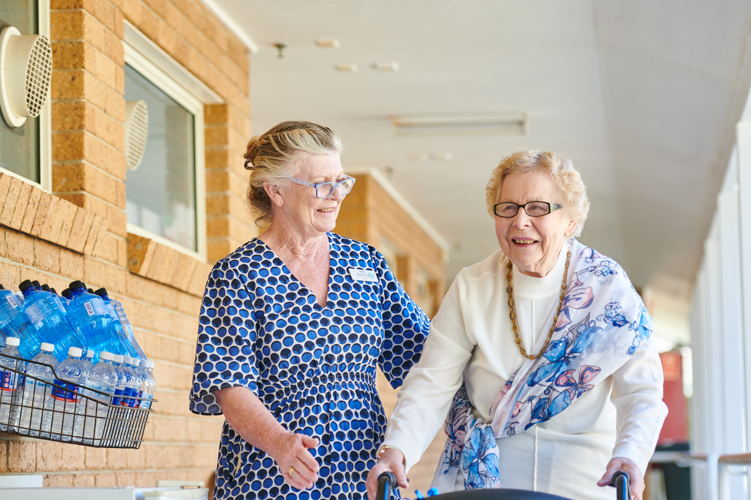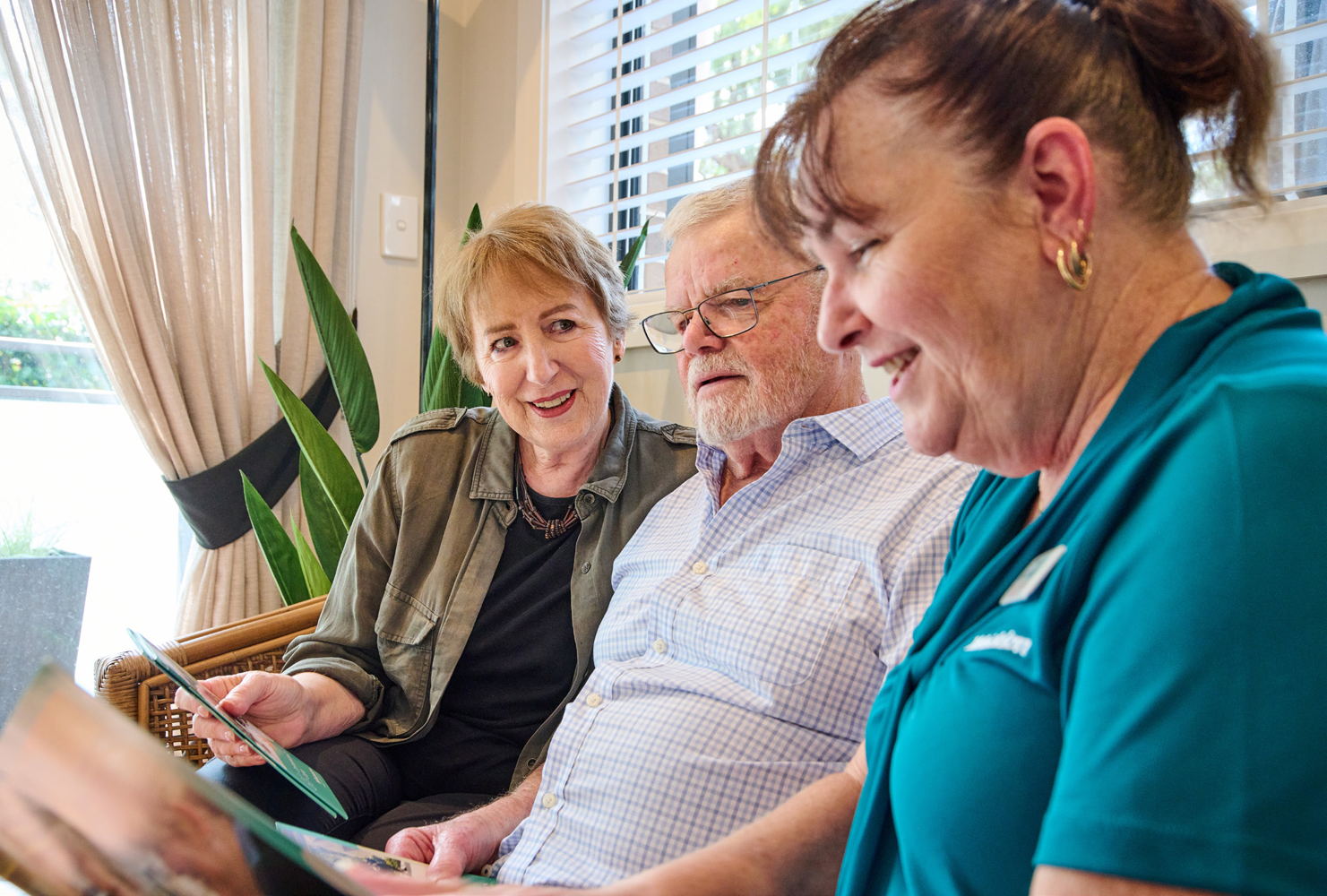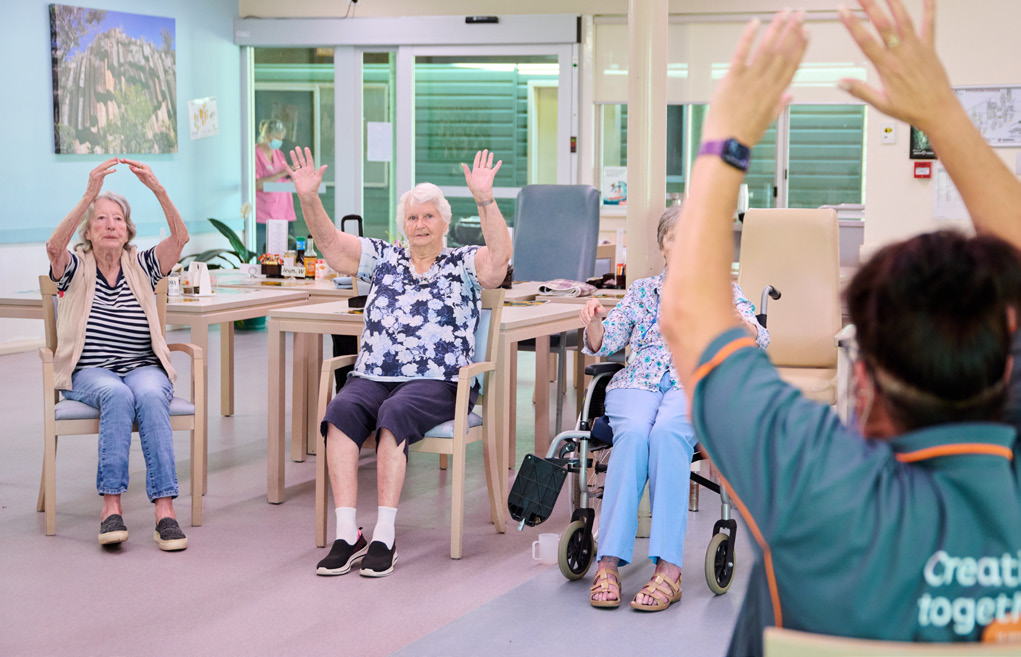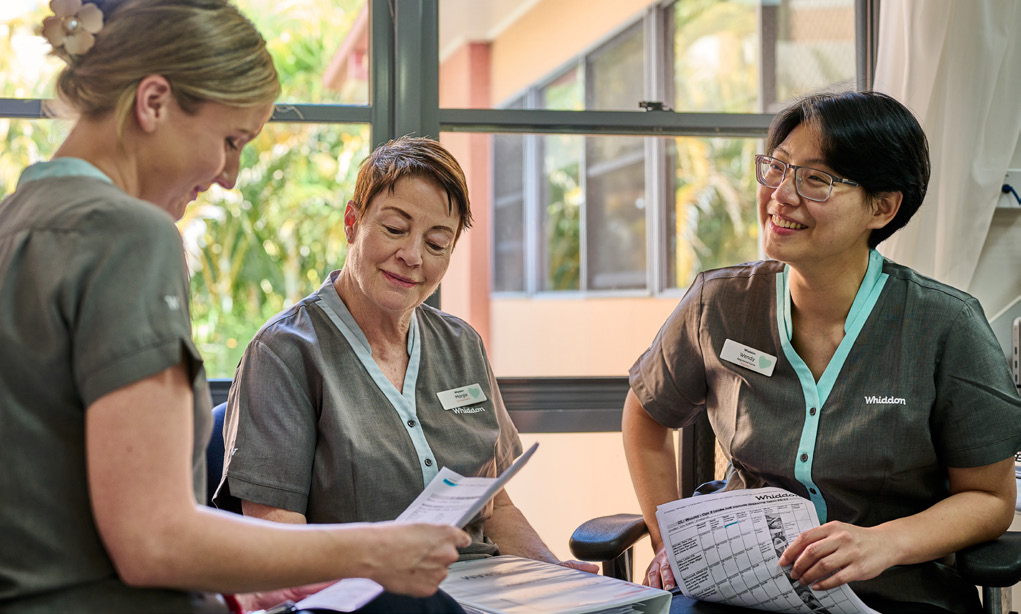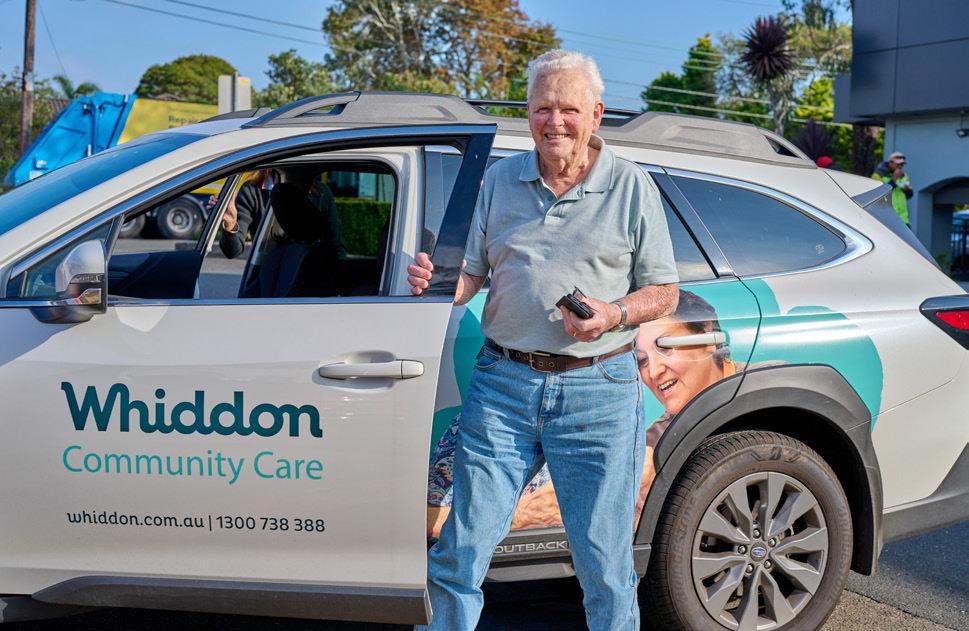Whiddon Leads Groundbreaking Collaborative Health Care Pilots to Transform Regional Aged Care
Australian-first collaboration unites aged care, government and hospital systems to deliver a new model for care reform.
1 July 2025
SYDNEY, NSW — 1 JULY 2025
A powerful new model to address Australia’s rural health crisis is now being trialled across New South Wales. Spearheaded by leading aged care provider Whiddon, the Collaborative Health Care (CHC) Initiative aims to improve outcomes for older Australians living in regional and rural areas by bridging long-standing gaps between aged care, government and health systems.
This provider-led, multi-sector partnership has progressed from concept to implementation in under 12 months, an uncommon pace in health reform. With 6 pilot projects due to commence, the project is backed by over 20 partners, including state and federal health departments, aged care and hospital providers, academic leaders, and peak bodies. The initiative brings to life a shared vision for integrated, locally delivered, and scalable care.
The initial vision was outlined by Whiddon CEO Chris Mamarelis, who authored a 2024 white paper calling for reform and locally driven, place-based solutions for regional care.
“Rural health systems are under strain, but they’re also full of opportunity. Through this initiative, we’re showing what’s possible when silos are removed, and care is designed with community needs at the centre – and we’re not asking for a cent to make this happen,” said Chris Mamarelis.
The CHC Initiative was shaped through two landmark workshops at the University of Sydney in April and June 2025, where over 40 sector leaders came together to define shared priorities and co-design solutions. These sessions laid the foundation for six pilot programs, launching across key regional NSW locations from today.
“To move from a white paper to boots-on-the-ground pilots in under a year is almost unheard of in our sector — and it speaks volumes about the will for change across the system,” Mamarelis added.
He continued, “This progress has only been possible because providers, policymakers and partners came to the table not just with ideas, but with action, united by the belief that we can do better for older Australians in our regions.”
Twelve-week pilot programs for the CHC Initiative are now active across multiple regional NSW locations. Each pilot is designed to address a critical system challenge by testing collaborative, real-world solutions tailored to local contexts. The pilots currently underway include:
- Shared Workforce Models: nurses and allied health professionals are trialling flexible staffing arrangements across both hospitals and aged care homes. The goal is to alleviate workforce shortages, reduce duplication, and improve continuity of care.
- Agile Transitional Aged Care Beds: A new, fast-tracked hospital discharge pathway is being co-designed to relieve bed pressure in regional hospitals. The model enables patients to be transferred directly into available residential aged care beds, bypassing administrative bottlenecks.
- Shared Wellbeing Programs: Long-stay hospital patients are joining aged care–led wellbeing and lifestyle activities. The program supports social connection and cognitive health while easing the impacts of prolonged hospitalisation.
- Non-Clinical Services Sharing: Models for shared transport, catering, maintenance, and emergency preparedness are being piloted across co-located or nearby providers. These aim to improve service quality, support local economies, and reduce operational fragmentation.
- Emergency and Disaster Response: A shared agreement on emergency planning.
- Shared Transport: Community Aged Care Providers assist hospital inpatients and Residential Aged Care Home (RACH) residents with transport for health-related appointments
All pilots are supported by a dedicated local working group and coordinated under a shared governance framework developed by the Nous Group, with evaluation design led by the University of Sydney’s Professor Lee-Fay Low.
The broad cross-sector coalition, led by Whiddon, includes collaborators such as the NSW Ministry of Health, the Department of Health and Aged Care (DOHAC), as well as key peak bodies Ageing Australia and the National Rural Health Alliance. Pilot delivery is being driven by aged care providers including Uniting, RFBI, Catholic Healthcare, BaptistCare, IRT, Estia, and Bupa.
Progress will be tracked over the coming months, with pilot outcomes presented to State and Federal ministers in early 2026.
“We’re not waiting for reform; we’re building it from the ground up,” explains Mamarelis.
He continued, “Our goal is simple. Create a scalable, collaborative model that transforms how care is delivered across the country and ensure older Australians in our regions receive the integrated, dignified support they deserve.”
The CHC Initiative aligns with key national priorities, including the response to the Aged Care Royal Commission, regional health equity strategies, and aged care workforce reform. It is anticipated that the model could serve as a blueprint for future national integration between aged care and health systems.
To learn more about the Collaborative Health Care (CHC) Initiative, visit:
www.whiddon.com.au/collaborative-health
-ENDS-
Notes to Editors:
Key Initiative Facts
- The Collaborative Health Care (CHC) Initiative is a provider-led, cross-sector reform project led by Whiddon.
- The initiative has moved from white paper to pilot implementation in under 12 months.
- Six pilot programs are now underway across regional NSW, focusing on shared workforce, transitional beds, wellbeing, and operational integration.
- The project is backed by over 20 partners, including NSW Health, DOHAC, the University of Sydney, and major aged care providers.
- Evaluation is led by the University of Sydney, with governance and project management provided by Nous Group.
- Pilot results will be presented to state and federal ministers in early 2026 to inform national reform opportunities.
Why the CHC Initiative Is Needed
- Older Australians in regional and rural areas are three times more likely to experience delayed hospital discharge.
- Access to allied health services in rural areas is up to 50% lower than in metropolitan regions.
- Regional aged care and health services face severe workforce shortages and fragmented delivery models.
- There is limited coordination between state-funded hospitals and federally funded aged care, leading to duplication and inefficiencies.
- Emergency preparedness and support services are often siloed or under-resourced in rural communities.
- Aged care providers are ready and well-positioned to play a greater role in integrated, community-based health delivery, but need a unified framework and partnership model to do so.
About Whiddon
Whiddon is an award-winning care provider that aims to inspire every day in its 22 RAC homes, dedicated community care and NDIS support across NSW & SE QLD. Its purpose is to enrich people’s lives and make a real difference.
Whiddon has been providing exceptional care to older Australians and people with disabilities across regional, rural, and remote NSW and QLD for more than 75 years.
Whiddon proudly partners with academics and universities to remain at the forefront of innovation as it leads the latest thinking, programs, and training around quality of life and ageing.
Supportive Imagery


